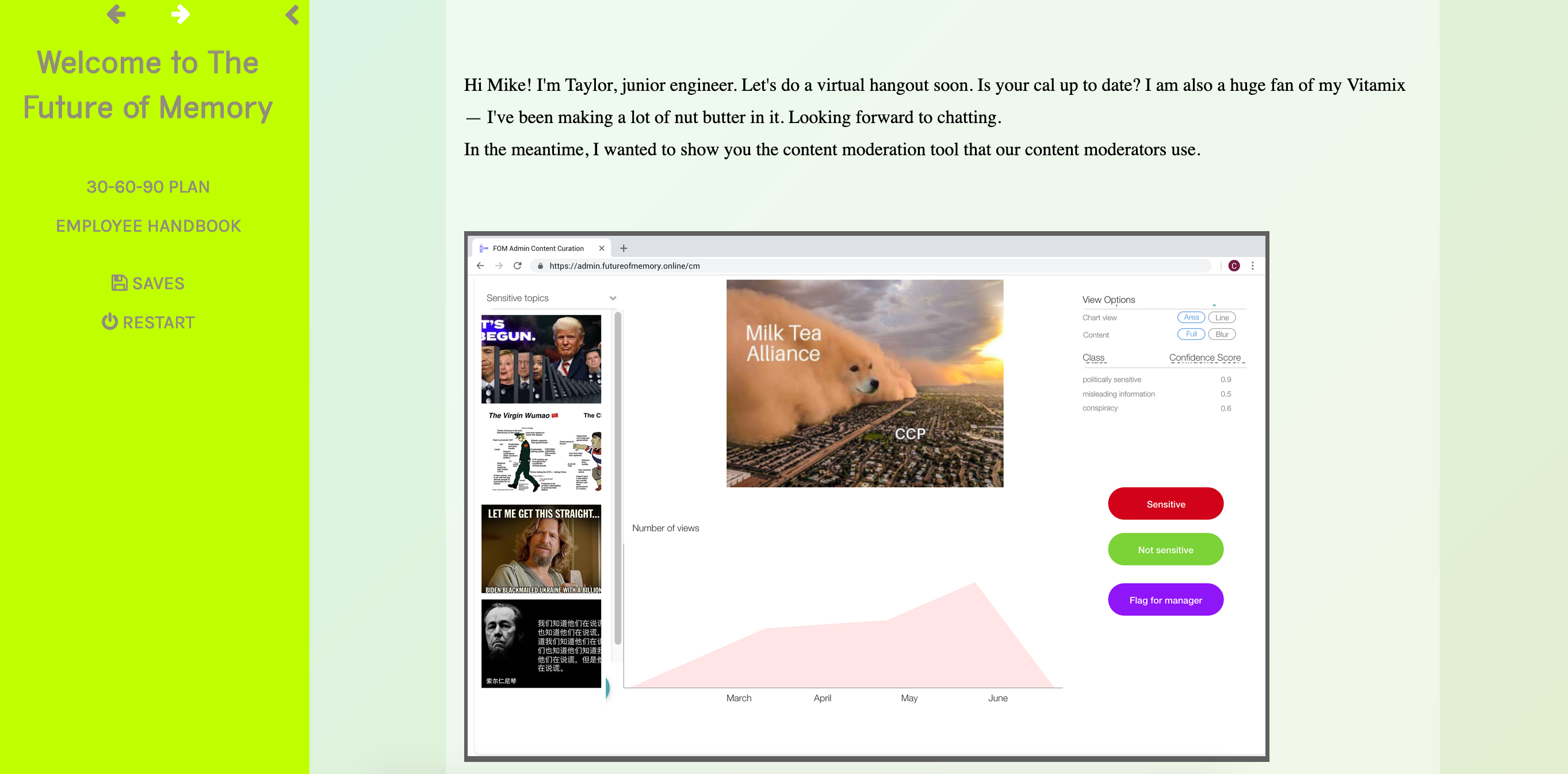Introducing The Future of Memory, a Mozilla Creative Media Award recipient created by Xiaowei Wang, Qianqian Ye, Jasmine Wang, and Yang Yuting
Censorship has always been a key tool for the powerful. And in an era of AI, automation has made censorship even more potent: Algorithms can increasingly police what people share online.
In this new environment, it’s difficult to organize, to advocate, to dissent, or even to catalogue what citizens are truly thinking and feeling. Automated censors can dictate what gets remembered — and what gets forgotten. How can internet users reclaim agency?
This is the central idea behind The Future of Memory, a browser-based game and tool that teaches internet users how to outsmart censors and build “machine resistant” communications. Get started at http://thefutureofmemory.online/
In the choose-your-own-adventure game, users play as a moderation engineer at a fictional tech company tasked with censoring content. Along the way, users work in content moderation and make decisions about automation. By the end of the game, users understand how automated content moderation is one piece of the larger issue of centralized corporate platforms having power over discourse.

Once users complete the game, they can access a toolkit for countering algorithmic censorship in the real world. Users learn about creative ways to outsmart censors — like using Morse Code or Martian language — or by designing novel Chinese characters that slyly communicate an idea.

The Future of Memory is created by four Beijing and U.S.-based technologists and activists: Xiaowei Wang, Qianqian Ye, Jasmine Wang, and Yang Yuting.
Says Xiaowei: “As algorithmic censorship becomes more powerful and more prevalent, the internet is a powerful space of representation. Our goal is to counter censorship and assert a ‘collective right to memory’ — a shared say in documenting our lives and history.”
Mozilla’s Creative Media Awards are part of our mission to realize more trustworthy AI in consumer technology. The awards fuel the people and projects on the front lines of the internet health movement — from creative technologists in Japan, to tech policy analysts in Uganda, to privacy activists in the U.S.
The latest cohort of Awardees uses art and advocacy to examine AI’s effect on media and truth. Misinformation is one of the biggest issues facing the internet — and society — today. And the AI powering the internet is complicit. Platforms like YouTube and Facebook recommend and amplify content that will keep us clicking, even if it’s radical or flat out wrong. Deepfakes have the potential to make fiction seem authentic. And AI-powered content moderation can stifle free expression.
Says J. Bob Alotta, Mozilla’s VP of Global Programs: “AI plays a central role in consumer technology today — it curates our news, it recommends who we date, and it targets us with ads. Such a powerful technology should be demonstrably worthy of trust, but often it is not. Mozilla’s Creative Media Awards draw attention to this, and also advocate for more privacy, transparency, and human well-being in AI.”
